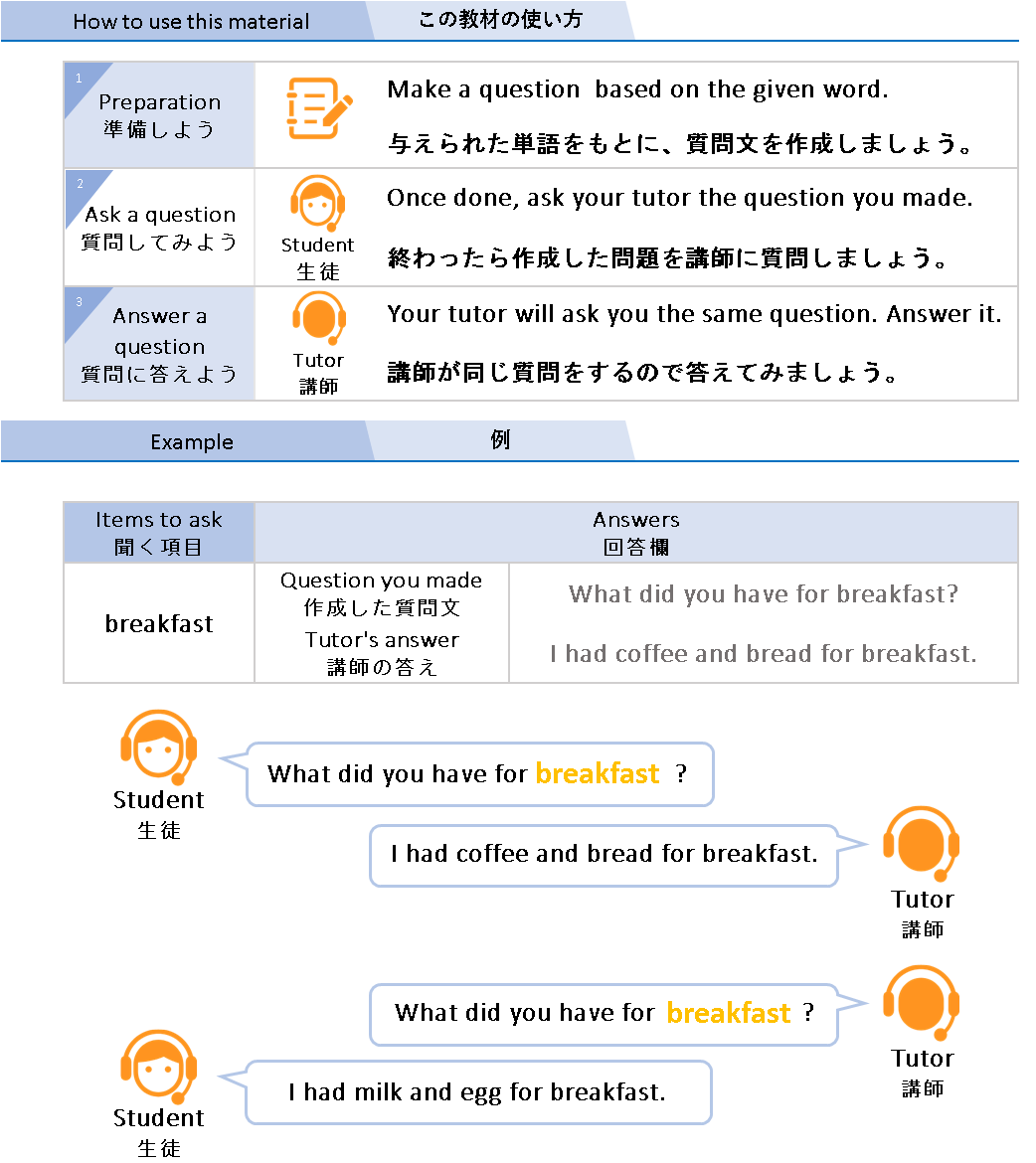In this material, you will learn how to talk about community service in an English conversation.
この教材では、社会奉仕について話す練習をします。

Next week, I am going to volunteer as an English tutor at the kindergarten nearby. We still need more volunteers. Would you like to join?
|
I would like to join you but I am not sure if I’ll be available next week. Is it your first time to volunteer?
|

No. Actually, it is my second time. Last year, I volunteered as an English tutor in the same kindergarten. We usually play games, teach English alphabets, and prepare meals for the children.
|
Wow! That sounds interesting! Being a volunteer seems tiring but sounds fun!
|

You are right. I feel really glad to teach children in our community.
|
That is nice to hear. I hope I won’t be busy next week so that I could join you. |
| 1. | Have you tried community service before? How did it go? |
| Answer: | |
| 2. | What kinds of community service would you like to try? |
| Answer: | |
| 3. | Have you done social work? Why or why not? |
| Answer: | |
| 4. | What do you think are the advantages and disadvantages of doing social work? |
| Answer: | |
| 5. | In your opinion, to whom should social workers focus in your country? |
| Answer: | |
| 6. | Do you think social workers should get higher pay because of the nature of their job? Why or why not? |
| Answer: | |
| 7. | Do you think the government should be responsible for the lives of their less-fortunate people? Why or why not? |
| Answer: | |
| 8. | What activities do social workers usually do in your country? |
| Answer: | |
| 9. | In your community, are people willing to help each other in times of trouble? |
| Answer: | |
| 10. | Do you feel safe in your community? Please tell me more about it. |
| Answer: |
| Grammar 文法 |
Pronunciation 発音 | Vocabulary 単語 |
Comprehension 理解 |
|
|---|---|---|---|---|
 GOOD GOOD |
文法の誤りはほとんどなく、完全な文章で話すことができる | ほとんどの単語をはっきりと正しく発音することができる | 習った表現を適切に使うことができる | 文章を理解し、質問に正しく答えることができる |
 FAIR |
文法の誤りはあるが、完全な文章で話すことができる | 発音の練習が必要な言葉がいくつかある | たまにミスはあるが、習った表現を適切に使うことができる | 文章を完全に理解するのは難しく、質問に正しく答えられないときもある |
 POOR |
文章で話すのは難しく、単語だけで話すことができる | 発音の練習が必要である | 習った単語と表現を少しだけ使うことができる | 文章を理解するのは難しく、質問に答えるのは難しい |
レッスン教材の改善・拡充を図ることを目的とし、アンケートを実施しております。
以下のURLからアンケートにお答えいただき、 ご意見・ご要望をお聞かせください。
アンケートはこちら




